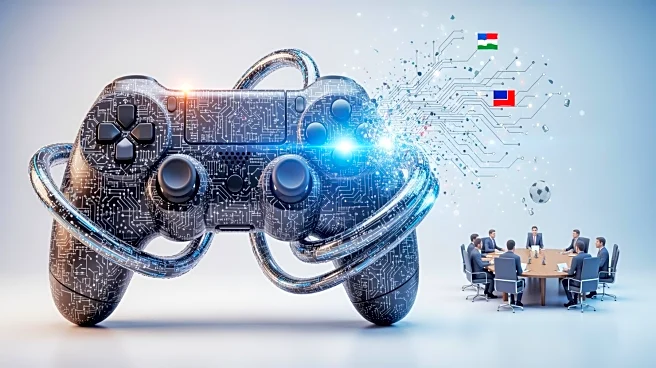What's Happening?
Dan Houser, co-founder of Rockstar Games, shared his views on artificial intelligence and large language models during a podcast interview. Houser expressed that he is 'less scared than a lot of people' about AI's role in video game development, particularly
in generating large-scale concepts. He believes AI lacks the ability to produce original ideas and that its human-like writing capabilities still require significant improvement. Houser noted that while AI can mimic human writing to a certain extent, the final stages of achieving true human-like quality are challenging and time-consuming. He emphasized that individuals with original ideas and talent will continue to thrive despite AI advancements.
Why It's Important?
Houser's perspective is significant as it addresses the ongoing debate about AI's impact on creative industries, particularly video game development. His comments suggest that while AI can be a useful tool, it may not replace human creativity and originality. This viewpoint is crucial for developers and artists who may be concerned about AI's potential to automate creative processes. Houser's insights highlight the importance of maintaining human input in creative endeavors, suggesting that AI should complement rather than substitute human creativity. This could influence how companies approach AI integration in their creative workflows.
What's Next?
Houser's remarks may prompt further discussions within the gaming industry about the role of AI in development processes. Companies might explore ways to leverage AI as a supportive tool rather than a replacement for human creativity. Developers and artists may focus on enhancing their unique skills to ensure their work remains distinctive in an AI-influenced environment. Additionally, there could be increased investment in AI technologies that enhance rather than replace human creativity, fostering innovation in game design and storytelling.
Beyond the Headlines
Houser's comments also touch on broader ethical considerations regarding AI's role in creative fields. The potential for AI to produce 'generic' content raises questions about the value of originality and the preservation of artistic integrity. As AI continues to evolve, industries may need to establish guidelines to ensure that technology enhances rather than diminishes creative expression. This could lead to new standards and practices that prioritize human creativity while utilizing AI's capabilities.

















